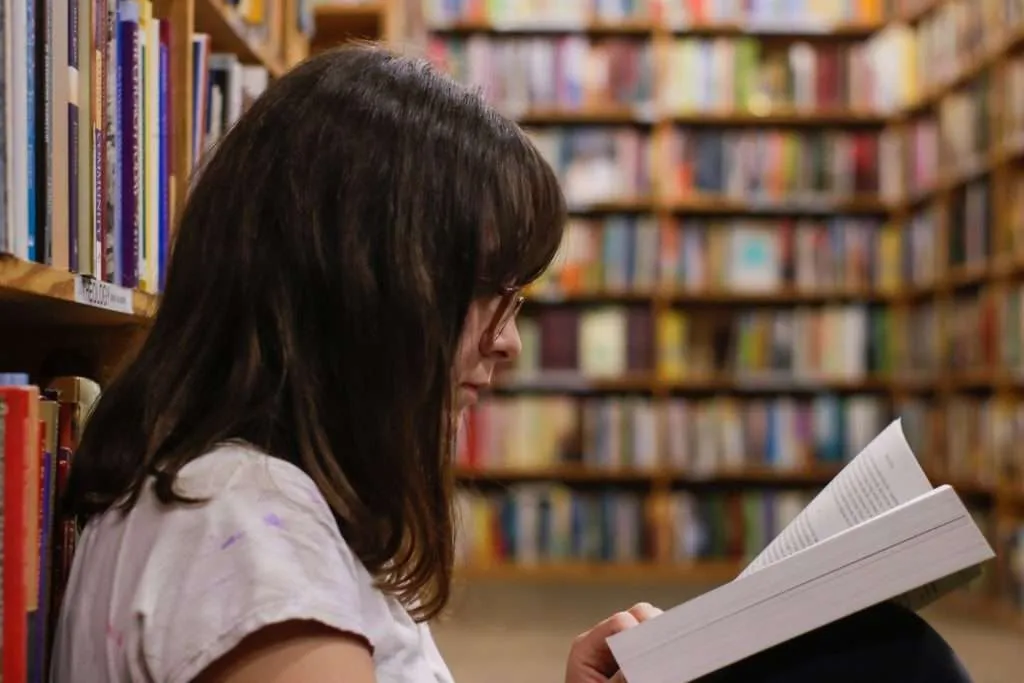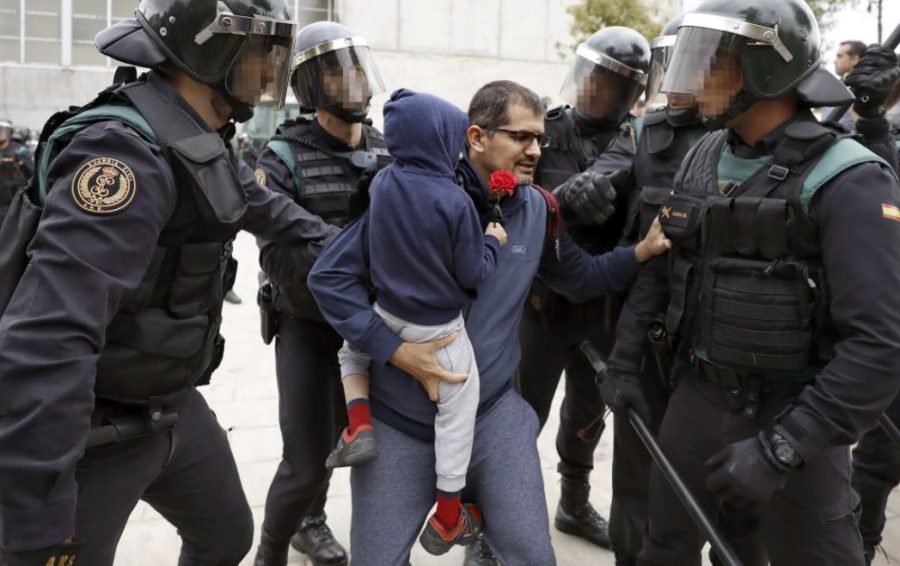The Catalan Referendum
Struggle for Independence
A Catalan man carrying a child is evicted from a school by the police.
October 11, 2017
After police brutality left hundreds injured in the Spanish region of Catalonia, the question of what exactly is happening remains unclear for many. In fact, the region is attempting to break away from the rest of Spain in an independence movement. But the problem is that the Spanish government claims that such a movement would be illegal, and they are going to extreme lengths to prevent it.
Voting for the Catalans to decide if they wanted independence was set to be on October 1st, but the Spanish government sent police troops to forcefully prevent the vote. BBC reported that “national police and paramilitary Civil Guard” forcibly “seized ballot papers and boxes at polling stations.” But thousands of Catalans tried to vote regardless of the forces trying to stop them, causing violent conflict that resulted in numerous injuries. Armed with batons and even rubber bullets, the policemen caused injuries to the young and old alike.
So far, The Guardian reports 844 civilian injuries and 33 injured police. These injuries resulted after heightened violence, such as “police using axes to smash doors” and “charging the crowds” while “firing rubber bullets.” López Rodrígue, a witness, said that “they dragged them out violently” and that “we stood our ground but they kept dragging people away, kicking them and throwing them to the ground.” Such horrific events are drawing attention from around the world as people are shocked to see a developed country such as Spain undergo such unexpected violence.
Notably, hundreds of firefighters united to try and protect the citizens. This was after they unrolled a banner with the words ‘Love Democracy’ the Thursday before the voting began, which was in support of the referendum (Huffington Post). Witnessing the violence, the firefighters “formed human chains” to “act as buffer zones between civilians and security forces.” It is because of their selfless actions that a greater number of Catalans were able to vote and more violence was prevented. Even so, shocking images of the police brutally beating the firefighters sparked anger and disbelief among the voters and witnesses across the world.
Sarah Chen (10) discussed the conflict, pointing out that
“the violence is heart-breaking to watch, especially because so many people are being attacked even when they put their hands up in surrender.”
Catalonia’s struggle for independence and the harsh reaction of the Spanish government in an attempt to prevent a referendum are issues that are creating ripples among other countries as well. Leaders of countries are stepping up to voice their own opinions, such as the Belgian Prime Minister, Charles Michel, who tweeted that “violence can never be the answer.” Nicola Sturgeon, the Scottish First Minister, also tweeted that “regardless of views on independence, we should all condemn the scenes being witnessed.”
King Felipe VI of Spain released a video statement about the situation, in which he said the Catalan officials were showing “disrespect to the powers of the state”. But the Catalans were quick to point out the many faults in the video; King Felipe VI failed to encourage negotiation and did not even mention the police brutality. Consequently, the video proved to have a very limited effect upon the numerous protests and rebellions that the Catalans continued to show.
Currently, the future of Catalonia is unclear, but the best thing that can be done is for the rest of the world and Spain itself to denounce the obviously immoral violence and brutality. Above all, the current situation serves as a reminder of the importance of peace.





































